Starting with the disclosures, both of my parents taught public school for their entire careers. My mom ended her career in administration as a principal. My brother and I were hugely successful in the public school system. We got good grades and played competitive sports. We enjoyed clubs, friends, and fun times and went off to college for more of the same.
So when I declared I would homeschool my son, who is affected by autism, and then later chose unschooling, it was a decision that went against my own family culture.
It was a choice I NEVER thought I would make.
Raising a child with autism means that everything in my life is amplified. The joys are amazing, the lows are…well, really low. Life is lived at full tilt every day.
Within a single day, an autism parent is managing several aspects of the child’s life in intimate and excruciating detail. Things like medical care and coordination, dietary needs, recreation and social opportunities, therapy management and of course, education need a phenomenal amount of attention.
By law, children with disabilities have the right to a “free and appropriate public education.” What they actually get, and the amount of time and energy needed to secure that, vary from child to child.
In the public school special education system, there is a lot of initial effort and energy put into meetings to establish goals, placement, and accommodations for children who qualify. There is also a lot of effort and energy put into making sure those established goals and accommodations are followed.
There is another entirely different system set up for complaints and hearings. To say this process is not dynamic would be an understatement.
Before I sent my son to school, I had a lot of questions:
Q. What if the goals needed to be changed?
A. We schedule a meeting and revise them.
Q. It’s taken six weeks to schedule this meeting because there are eight people on the team. Are you telling me we can schedule future meetings more quickly?
A. Um, well…
Q. I want to see the different schools and classrooms that might be available to us to make sure I’m making an informed decision about my child’s education. When can this be arranged?
A. You can only visit the classes when they are empty due to privacy concerns.
Q. So I can’t see the classroom in real time?
A. No. But we have this great swing, and all the kids with autism love it!!!
The school’s responses left me nonplussed.
My request to have an advance copy of the Individualized Education Plan (IEP) before our IEP meeting must have caused quite a ruckus. There were no fewer than 12 people at that first meeting and they all looked really uncomfortable.
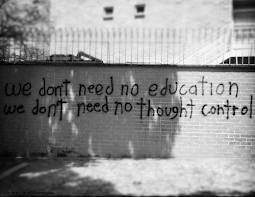 Yeah, this wasn’t going to work for me.
Yeah, this wasn’t going to work for me.
I have a limited amount of energy to get things accomplished in a given day. I can either spend that energy trying to get people to understand how to work with my child or I can just do it myself.
In our case, it was the unlikely choice of homeschooling that has led to the best results for my child.
My decision to “unschool” my son also goes against traditional thinking on what kids with learning disabilities, and particularly autism, need in order to learn.
Autism parents often hear from the professionals that “kids with autism thrive on routine.” On the surface this appears to be true. Autism kids are drilled to comply with a certain routine and when the routine changes, they react loudly and sometimes physically. Ergo, they must need routine.
In my opinion, professionals like routine because it makes their jobs easier. I am not convinced that encouraging such rigidity is in a child’s best interest.
Raising a child who can think for himself, who can advocate for himself, and who can generalize skills and employ critical thinking skills requires a dynamic environment that’s tailored to his needs.
My goal has been to create an environment in which communication and ideas are always encouraged no matter what the proposed agenda or lesson plan.
Mistakes are allowed to happen for the sake of learning. Time is allowed to elapse without the pressure to perform. My son is blossoming before my eyes in this environment.
This educational approach requires a flexible and nimble approach on my part.
On a recent trip to the grocery store, my plan was to talk about agriculture and produce as we picked up some apples. That plan changed before it was implemented because my son became obsessed with the abandoned shopping carts in the parking lot.
So we scrapped the original plan and instead learned about shapes and sizes, physics, business, and having a work ethic.
Unschooling means being truly flexible in the moment and following the child’s lead and interests.
Not only does unschooling make philosophical sense for us, but it’s also practical from a medical perspective.
If my son has a bad night and doesn’t get much sleep, we don’t have to worry about getting him up and off to school. I don’t have to worry about the food allergens that would surround him in a school setting. I don’t have to worry about the cleaning chemicals or pesticides sprayed at the school that will adversely affect his health and behavior. I don’t have to worry about him being bullied, physically or emotionally. I don’t have to worry about his bowel issues causing him distress because he’s anxious and away from his home bathroom and routine. I don’t have to worry about his safety. And most of all, I don’t have to worry about his needs not getting met.
My son is able to relax, learn, and be confident in the person he is. After two years of unschooling, he is now demonstrating an ability to generalize knowledge, which is kind of the Holy Grail for successful education with kids with autism. So I know this is a good fit for him.
Through unschooling, we are able to focus on the aspects of development that he still needs to catch up on, rather than piling on grade-specific academic requirements just because he is chronologically ten years old. My energy is directly spent nurturing his development, rather than meeting with people about how they can best meet his needs, and then having to follow up because his needs are not getting met.
My goal is for my son to become a lifelong learner. I want him to enjoy the act of learning and to be internally motivated to keep moving toward new knowledge. Because of his disability, we just do it at a much slower pace than most people. We do it at HIS pace.
Do kids really learn things with unschooling? Yes, absolutely. Is it sunshine and butterflies everyday? Um, no. It’s harder to keep the house in order. I work from home and it’s been a struggle for me figuring out how to make that happen. My attempts to work on my own “stuff” are constantly interrupted and that goes against my best work routine. I like structure and order so I’ve had to revise my own paradigm about work, learning and reaching goals. Again, this takes a lot of flexibility on my part.
It’s a life in constant flux and we are all learning how to cope and deal with change daily. Isn’t that what life and learning is all about?
Resources
The Successful Homeschool Family Handbook by Dr. Raymond and Dorothy Moore
The Unschooling Handbook by Mary Griffith
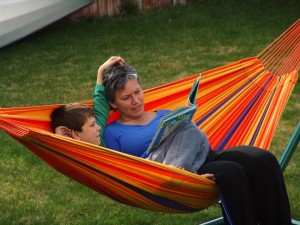 Amy Yardley lives in Coeur d’ Alene, Idaho with her husband Franz and her 10 year-old son Spencer. In addition to homeschooling, she owns Yardley Training & Consulting, a business specializing in service delivery system improvement when working with people in poverty and/or crisis. She holds a Bachelor’s degree in Political Science from Ball State University.
Amy Yardley lives in Coeur d’ Alene, Idaho with her husband Franz and her 10 year-old son Spencer. In addition to homeschooling, she owns Yardley Training & Consulting, a business specializing in service delivery system improvement when working with people in poverty and/or crisis. She holds a Bachelor’s degree in Political Science from Ball State University.

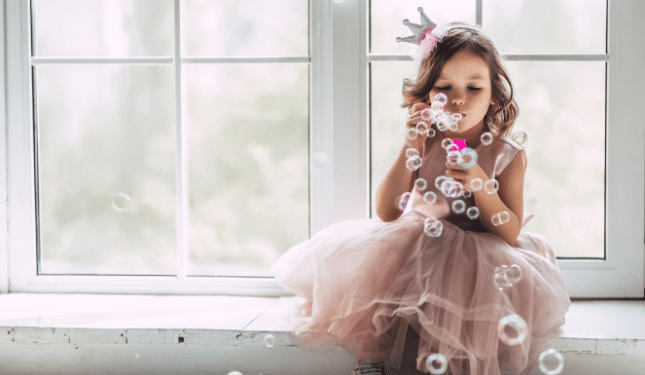








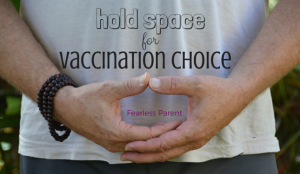

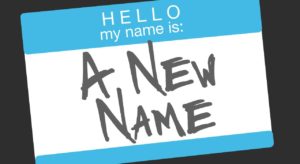
Il LOVE THIS!!! This is closely looks like a day in my in my home and I’ve gotten a lot of flack for it! 🙁
Thank you KJ! Yes, I’m familiar with that look you get from others thinking that you are just watching TV all day 🙂 Deschooling myself took quite a long time as well but it has been worth it. Thank you so much for your comment!
Wonderful! You said it so beautifully! Thank you for sharing!
Thank you Meadow!
Great article! My husband and I met you at the autism one conference and it was so nice getting to chat with you. I hope everything continues to go well with your son. 🙂
Hi Melissa! Nice to ‘see’ you again and I hope things are going well for you and your family too 🙂
This is such a great article, Amy! Well done! It gives me hope that should I ever need to home school Joshua, it can certainly be done! I’ve done it with my older kids, and being flexible is the name of the game, even with NT kids!
Thanks Sheila – with your experience, I have no doubt you would have a successful homeschool experience with Joshua if that’s the direction you chose!
Great article! I LOVE your perspective and can absolutely see the value in what you are doing. Like you, I never thought I’d even consider something like unschooling but recently have gotten to know another family who takes a similar approach. Hmmmmmm, certainly makes the wheels start turning in my mind.
Thank you Cheryl!
Unschooling can be very successful, however if the eventual goal of school is to integrate a child into a mainstream world (i.e. college, job, etc) then some sort of exposure to “routine” is mandatory.
If integrating your child into the mainstream world is NOT a goal, then there is no need for scheduling.
Unless you run your own business from home, pretty much all jobs require some comfort level with scheduling or routine.
Thanks for your comment! We do have schedules and routine at home – appointments, morning routines, chores, food preparation routines etc so unschooling (at least in my house) does not mean that the entire day/life of the child is unstructured, just that the lessons are built upon the interests of the child rather than imposed from a top-down sort of approach and that experiential opportunites are used for learning rather than a day-by-day curriculum plan.
Social rules, norms and expectations are not thrown out the window with unschooling. All of these are taught, reinforced and modeled daily at home.
Hi, I live in Washington and have a huge dream to homeschool both of my children. My daughter is 3, my autistic son is going on 8 and unfortunately I caved to all the opinions of others and put him thru school even though I had gotten my qualifications and planned to homeschool.
I had no idea how to work with him and even now, bringing him home, I have struggled with unschooling vs. Homeschooling because on one hand he is “severely delayed,” on the other hand he stubbornly resists doing more than just a few minutes of anything, unless it is what he wants to do, which is usually alone. Unfortunately it is hard to go off of his interests because he only has about one or two and he will not let us in on them.
What I did do, which is huge for him, is reward him with treats to let me teach him how to use the apps I installed on his new ipad. Now periodically throughout the day I find him doing the apps on his own. They teach counting, reading and writing. I also made them bilingual as much as I could.
But what baffles me is that his IEP is written so that by next year, he would have been able to identify and point to the color green, plus read the word. This really baffles me. I almost wonder if they did this to try to intimidate me from homeschooling!
My son can certainly discriminate colors, but he has a hard time demonstrating knowledge of anything, and he is not good at answering questions. The only questions he has ever answered are ones I have taught him…not them.
My son does do quite a bit of natural play these days, while not apparently as imaginative as my daughter’s, he likes to play in water and on his slide. He likes instruments, children’s show songs, and walking on the outside of his slide, as if he is trying to learn balance. I am beginning to understand that these routines he follows every day are a part of who he is and maybe he just needs to do those things, maybe they help him learn what he wants to know about life.
I will still attempt to work with him everu day when my daughter sleeps, but I will keep his activities much more simple, and much more brief. I do need to coax him a bit to do anything, but if he resists after even being rewarded, then I know I am being to forceful, and then I go thru this horrid guilt trip. I want him to feel good about home and about me!
I am glad you took the time to share your experience so that other ppl will feel that it is okay to trust their child a bit more. Besides he can only truly grasp things when he is ready to learn them.
I wanted to comment to the above person that while it may be true that the real world operates on schedules, our children unfortunately do not tend to adjust well to sleep schedules that go in line with public school. My son does not eat well at school. He doesn’t poop at school and cannot stay asleep the whole night to be able to get up at 7 with no more rest the entire day. He cannot take naps even if he tries.
So it would probably be a better idea to cater to his natural body rhythms, allpw that to shape his development/maturation and emotional regulation, then when he grows up, we can cross that bridge when we get there. After all he will not require as much sleep by then anyway.
“My energy is directly spent nurturing his development, rather than meeting with people about how they can best meet his needs, and then having to follow up because his needs are not getting met.”
This is exactly it. After years of special ed preschool and a nightmare kindergarten year we had enough. Homeschooling is one of the best parenting decisions we’ve ever made.
I started homeschooling/unschooling my now 9 year old son last year and I’ve been having similar results to yours. He is blossoming in ways he never did in the traditional school setting. I’ve been keeping a blog/journal about it at : http://weauttobeathome.blogspot.com/
Maybe we can compare notes someday?
Hi! I LOVE this article! It is truly amazing to feel some validation that I may be on the right track! My daughter is 12 months old w early onset ASD and I’m already encountering similar concerns, developing her IFSP has been a painstaking and lengthy process to say the least! Tomorrow (nearly 3 months after first contact and 2 months from full developmental eval, we are having a meeting to revise the IFSP goals and eliminate an OT goal that was created without my input and I’m totally opposed to! But yes great we will revise the goal but it’s clear to me NO one but myself wil l be able to see to these “goals” are ever worked on or her needs are met, and she’s a baby at home! I can’t even imagine how that would go while she’s in school in the care of strangers! I mean the initial 3 month goals are already 2 months old and I feel silly for not simply starting the therapies sooner but was told by my ridiculous service coordinator “it was her job to schedule those”… Yikes! I have a great new service coordinator who actually responds to my phone message in a timely fashion, unlike the week delay with the prior, she’s on the ball, but trying to complain about this “small” issue was a nightmare. . Can’t imagine what a horror mediation and due process hearings must be! So I’ve been looking into unschooling a lot recently and I feel it’s the way to go for us! I’d love any tips & advice you may have. BTW we are in Florida and I’m going to check out the link on homeschooling laws in our state! Thanks so much for creating this awesome and inspiring page!
I love this article, too. I’m going to ask my friend who’s a big unschooling proponent, to comment here.
So after reading through the Florida State laws I have a question/concern hopefully u can help with! I know I have PLENTY of time, but what can say, I’m a planner! I read that each year an certified evaluator must do several things including eight administering a standardized test… For children with autism is it necessary to create an IEP in order to be compliant with this testing but at her level? Thanks!
Liz, there is a Florida Unschoolers website and Facebook group. They can share experience and specifics about legal aspects of homeschooling/unschooling.
https://sites.google.com/site/floridaunschoolers/
Pat Robinson
Is there a GA one? How can I find out the legality on this topic?
Here are links to many unschooling groups across the US: http://www.unschoolingmom2mom.com/local-unschooling-facebook-groups.html
Georgia: https://www.facebook.com/groups/GeorgiaUnschoolers/
Here are links to many unschooling resources across the US: http://www.unschoolingmom2mom.com/local-unschooling-facebook-groups.html
Georgia: https://www.facebook.com/groups/GeorgiaUnschoolers/
Hi. How do you “declare” this? I know how to register for homeschool but what happens after registration?
I have two boys non verbal, autistic ages 4 and 5. I want to have freedom without someone looking over my shoulder bc we dont fir any mold. Even ABA is not working for us. Too repetitve and my boys are bored. I know they can learn and enjoy learning but they learn more/ better through play time and natural learning.
Thanks.
Each state’s homeschooling law varies. It is most efficient to ask other unschoolers in your particular state regarding how to comply with that state’s homeschooling laws.
Georgia: https://www.facebook.com/groups/GeorgiaUnschoolers/
Additionally, there are ‘special needs’ homeschooling groups which can be a resource of parents with similar challenges helping each other.
Pat
This just hit the nail right on the head for me, I’ve been homeschooling my 4 kids for 4 yrs now. My oldest has a lot of learning delays including speech delays, my 2nd in line, Cole, is autistic.
I’ve been unschooling cole for a couple years now, I rarely talk about it, because you get the dreaded face of “Oh, is she that lazy?” or something similar, i’ve seen Cole grow 100x more than he ever would have in public school. Recently I ran into a family that my son had a class with. Her daughter is autistic (started same low functioning like my son). It has been 4 years and she’s gotten worse and more violent while my son has improved and is so much more independent and full of knowledge and surrounded by a caring, always loving environment that treats him with respect at all times. Thank you for your article. It made me feel braver.
Education is failing most children across the country. Only a handful in each classroom really get an appropriate education. In poorer area, as where I teach, it is deplorable. I teach 3rd grade and most of my students at the start of the year couldn’t read better than a 1st grader. When I receive RSP students, resource students, they are in and out of my classroom all day long and miss most of the instruction. Those parents who have children that have learning disabilities and choose to home school, are doing their children justice. In LAUSD, 1/2 of the high school students drop out of high school. Most that make it are not ready for college. This is not an education system. California is 43rd in the nation. When I was a child, America was number one in the world!!!
This mirrors our experience. Sometimes, I just have to read articles to know that unschooling works for others as well. Your comments about the IEP meeting experience (and 12 people there) was like my lightbulb moment when I asked a question about other resources and was railroaded into an 8 person IEP meeting instead where my questions were ignored…it was bizarre. Why spend money and time fighting for appropriate interventions when I could do them… but I didn’t know that unschooling was going to be a way for that to happen.
This is good to read. I’ve been through a decade of IEP meetings and can relate! My oldest recently did unschool (top 1% of a high school). Less than a year later, grades 11/12 done and is now in college, still excelling. Now the siblings want to follow. However we also have one in the spectrum and is nonverbal (totally normal until regressed at age 1.5, about a month after receiving 7 “catch up shots” as the practitioner recommended).
It can only get better from here. IEP/school is just a neverending losing battle unless you have the money for professionals in this field, or a lawyer. They know this too. We all know that in the end we have no one but ourselves to answer to when the question is asked, did you do everything you could as the mother and father of your children? Now, I can say that I am, however not proud to say it as so much time has passed and wished I did this earlier.